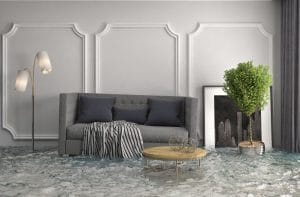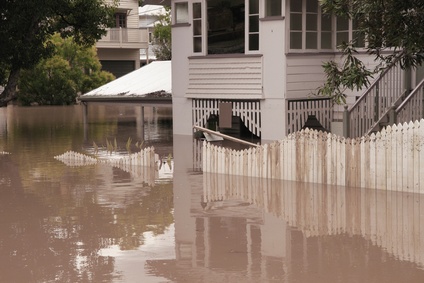Home Emergency Fund Guide
If you are a homeowner or own property of any kind, be sure to set aside a home emergency fund for the future. When your home is damaged by a natural disaster or some other event, you will need money for maintenanceMaintenance is the routine care, inspection, and repair of a... More and repairRepair is the act of fixing or restoring damaged property, m... More. Even small issues like a leaky pipe could cost thousands of dollars if they are ignored.
In the restorationRestoration is the process of returning a property to its pr... More and cleaning business, we know that moldMold is a type of fungus that grows in damp or humid conditi... More growth, flooding, fire damage, and more can cost thousands of dollars that is not always easy to come by. It is important to have money saved in case of an emergency.
What Is An Emergency Fund?
A home emergency fund is money that you save for a future emergency, such as floodingFlooding is the overflow or accumulation of water in areas t... More, mold growth, fire damage, and more. It can be difficult to get started if money is tight, so we recommend saving at least $1,000 for a starter emergency fund. Once your income improves, focus on building an emergency fund with up to six months of expenses.
It is important to have an emergency fund because life is unexpected, and you must be prepared. Natural disasters are dreaded emergencies, but even smaller ones like a leaky pipe or a broken HVAC system can cause serious damage. Your emergency fund will allow you to handle the financial aspects of a disaster.
Benefits of a Home Emergency Fund
There are many benefits to setting aside an emergency fund besides the obvious safety net and peace of mind.
Routine maintenanceMaintenance is the routine care, inspection, and repair of a... More discovers minor issues that could leadLead is a heavy metal that can be toxic to humans, especiall... More to major problems in the future. If you address these issues right away, you can prevent expensive maintenanceMaintenance is the routine care, inspection, and repair of a... More costs in the future. For example, a bit of moisture seems harmless but could cause moldMold is a type of fungus that grows in damp or humid conditi... More growth and weaken the structureStructure refers to the framework or components of a buildin... More of your building.
Extra funds allow you to pay for the repairRepair is the act of fixing or restoring damaged property, m... More and maintenanceMaintenance is the routine care, inspection, and repair of a... More of your property over the years. If your home is well-maintained, its value will increase, and you will be in a good position if you decide to sell the home. A well-maintained home is also more efficient, and you will likely spend less money on electricity and water.
You can even use the money in your home emergency fund to upgrade parts of your home that will improve the resale value. If you choose to sell your house, you will make money because of the upgraded appliances, cabinetry, roofing, flooring, plumbing, and more.
Finally, you will feel a sense of positivity and comfort in your home when it is being repaired and maintained regularly. Feeling safe and secure in your own home should not be underestimated.
How Much Cash Should You Have?
It is recommended to put three to six months of living expenses into your cash reserve. Your goal target should be 1% of the value of your property. However, we understand that some situations are direr than others, so start with $1,000 if you are in debt or your home is a fixer-upper.
It is also a good idea to create a general emergency fund in addition to your home emergency fund. This way, you can still pay your mortgage or rent if a natural disaster or other event has drained your repairRepair is the act of fixing or restoring damaged property, m... More fund. A general emergency fund is also for when life interrupts your income, such as a death in the family or sudden unemployment. It is recommended that you put 10% of your total savings in a savings account for future emergencies.
Contact Us
If you have experienced a natural disaster on your property or if a minor issue has turned into a larger problem, call a professional restorationRestoration is the process of returning a property to its pr... More company for service. Home emergency savings are important in this situation because you can focus on getting your home rebuilt and your own personal wellbeing rather than the financial strain of the restorationRestoration is the process of returning a property to its pr... More process.













